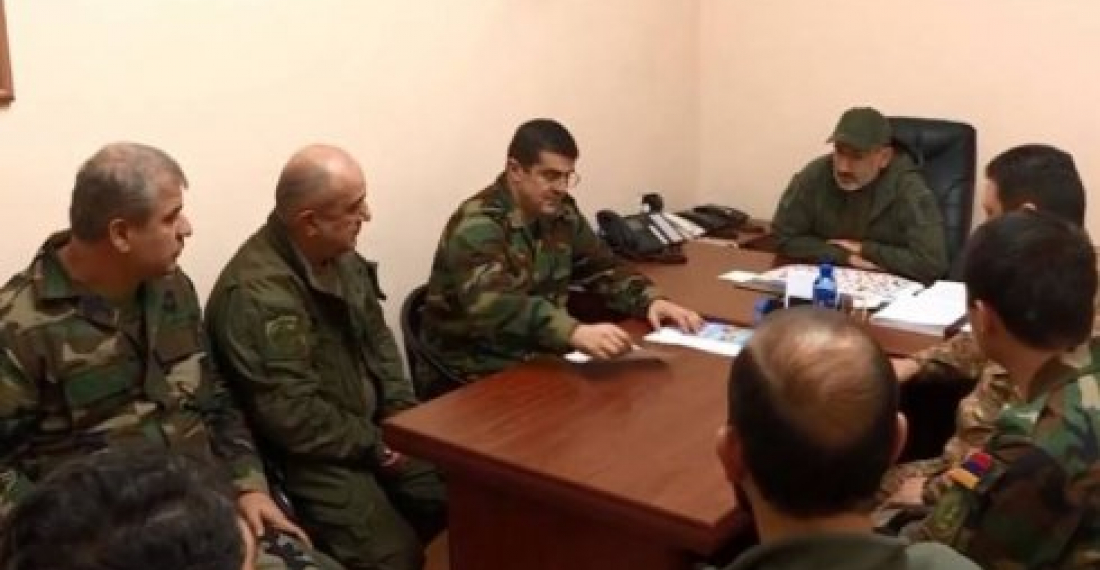It has been ten days since the fighting between Armenians and Azerbaijanis in and around Nagorno-Karabakh escalated into a full warlike conflict. This morning it appeared as if diplomacy had started to work and there was a lull in the fighting. But by lunchtime the guns of war started roaring again, accompanied by a further sharp increase in rhetoric.
Turkish foreign minister, Mevlut Cavusoglu arrived in Baku in the morning, underlining what has been a solid support by Turkey for the Azerbaijani position. Speaking after meeting the Azerbaijani leadership the Turkish foreign minister said that his country was ready to work with Russia for a solution of the conflict, but appeared to support the Azerbaijani position that fighting can only stop once Azerbaijan had regained its lost territory
Nagorno-Karabakh was also on the agenda when Turkish president Recip Tayip Erdogan spoke to German Chancellor, Angela Merkel this morning.
Armenian diplomacy has also been active, with foreign minister Mnatsakanyan speaking on the phone with counterparts in Europe and other countries. Armenia is highlighting claims that foreign mercenaries are fighting on the Azerbaijani side, a claim that Baku denies.
Whilst there are signs that diplomatic activity is intensifying, it was events on the front line that were most pressing.
Armenian prime minister Nikol Pashinyan was in Stepanakert, where he met the leadership of the self-declared Nagorno-Karabakh Republic and military officials who briefed him on the situation. Both sides continued to report heavy fighting in the southern sector of the line of contact in the Nagorno-Karabakh conflict zone, where the Azerbaijanis claim to have made territorial gains in the last days of fighting, regaining territory that has been under Armenian control since the conflict in 1992-94.
There are increasing concerns that the conflict may spread to other areas outside the immediate conflict zone around Nagorno-Karabakh. The Azerbaijanis say that a number of Azerbaijani cities have been attacked, including Azerbaijan's second city, Ganja, and the leadership of the NKR appear to confirm that they have shelled Azerbaijani cities in response to heavy bombardment of their administrative capital, Stepanakert.
As always in war, an early vicitim is truth. It is not possible to confirm many reports coming from both sides, and some reports appear to be outright fake news. Both sides accuse each other of waging a propaganda war that is as ferocious as the real war on the battlefield.
There is also increasing concern at the fate of civilians caught in the fighting. Both sides say dozens of civilians have been killed and many houses damaged. There are calls for an international investigation in what may have very well been war crimes. But for the moment both sides seem to be ready for continued fighting, and possibly also an expansion of the theatre of war.
source: commonspace.eu
photo: Armenian prime minister nikol Pashinyan meeting military officials in Stepanakert on 6 October 2020






